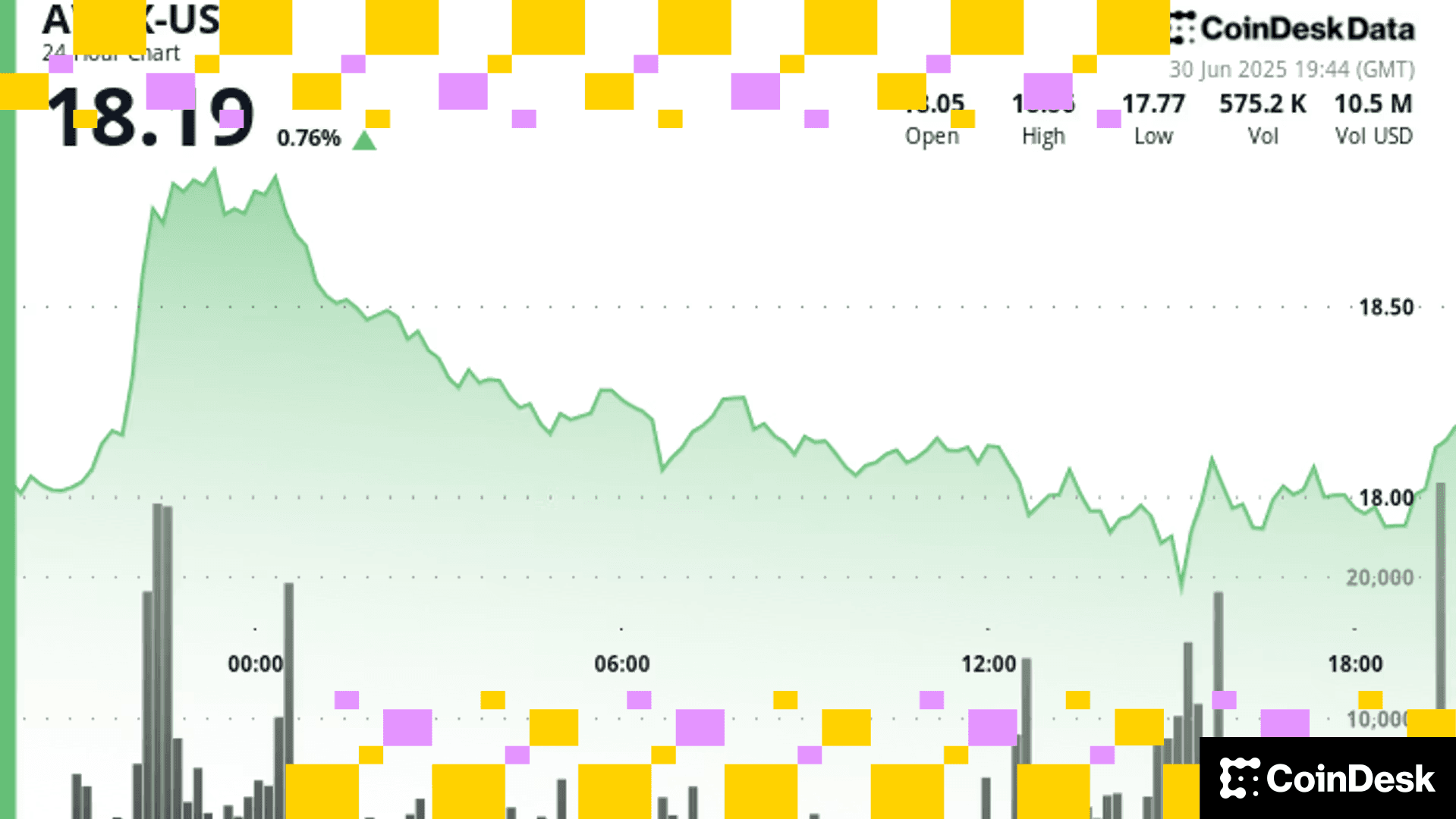NY Fed Policy Change Could Squash Stablecoin Issuer Circle’s Hope for Fed Access
Funds structured as stablecoin issuer Circle’s BlackRock-managed USDC reserve fund “generally will be deemed ineligible” for the New York Federal Reserve’s reverse repurchase program under the new rules.

The Federal Reserve Bank of New York (N.Y. Fed) has curbed its counterparty criteria for its reverse-repurchase program (RRP) Wednesday in a way that could prevent stablecoin issuer Circle from accessing the prized Fed facility.
According to a press release by the N.Y. Fed, funds “organized for a single beneficial owner,” registered as “2a-7 funds” at the Securities and Exchange Commission (SEC), “generally will be deemed ineligible” under the new rules. The Circle Reserve Fund, managed by global investment management giant BlackRock Advisors, appears to fall into this category.
The RRP lets selected counterparties – money-market funds, banks – lend overnight to the Fed at a fixed rate, currently at 4.8%. While the facility was originally created as a stabilization tool for the financial system, it has become a highly attractive vehicle to earn high yield with minimal counterparty risk. Currently, funds in the program reach almost $2.3 trillion.
Circle’s USDC stablecoin gaining access to the RRP would create “a stablecoin effectively backed by the Fed” and could potentially destabilize the financial system, the Bank Policy Institute, an important advocacy group for U.S. banks, said in January.
“The Fed updated the eligibility rules for the ONRRP facility in ways that could deny access to stablecoins,” Nick Timiraos, chief economic correspondent of The Wall Street Journal, tweeted.
Circle representatives did not immediately respond to a CoinDesk request for comment.
Circle, issuer of the $31 billion USDC stablecoin, keeps some $25 billion of the reserves in short-term U.S. Treasury bills in a bespoke BlackRock-managed fund called the Circle Reserve Fund. The Circle Reserve Fund is only available to Circle and was registered as a “2a-7” government money-market fund, according to Circle’s earlier press release and a SEC filing about the fund.
Circle’s goal for the fund was to gain access via BlackRock to the Fed’s RRP, Circle chief financial officer Jeremy Fox-Geen said in an interview with CoinDesk in November. This access would open the way to move USDC’s remaining cash reserves from partner banks to the fund under a Fed account, Fox-Geen added.
Last month, USDC weathered a crisis and temporarily depegged when it suffered from the sudden collapse of its banking partner Silicon Valley Bank. Some $3.3 billion of USDC’s cash reserve held at SVB remained inaccessible for days, sending shockwaves throughout the stablecoin market, until the government bailed out depositors holding in excess of the Federal Deposit Insurance Corporation’s deposit insurance limit. Circle took steps “to reduce risk from the banking system” and now holds its cash reserves primarily at BNY Mellon, a global systemically important bank, the firm said.
The calamity caused more than $10 billion in outflows from USDC and demonstrated how exposed fiat-backed stablecoins are to risks in the traditional banking system.
More For You
Más para ti













